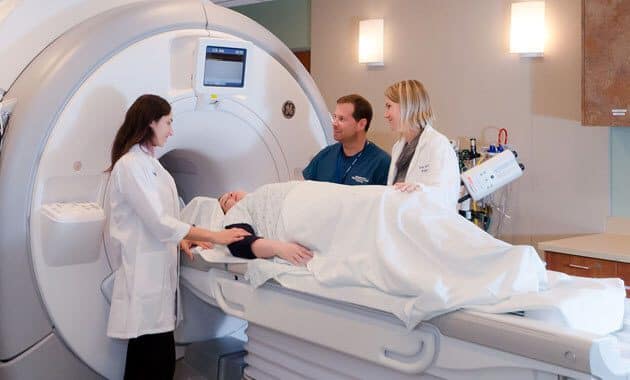While you should not panic or worry too much before your MRI, there is no avoiding the feeling of being nervous. Rather than panicking and preparing yourself for the worst, channel your nervous energy into preparing for the procedure. Here are a few things to keep in mind:
MRI scans aren’t pleasant. You’ll be lying on a table that has a rotating magnet in the middle. The machine will make noises like large camera clicks. If this causes you to feel nervous, you can ask for a medicine that relaxes you. If you have anxiety or are very sensitive to noise, the doctor may also prescribe some medicine to help you relax. MRI scans take about an hour.
Be sure to follow all instructions given by your doctor. Stay as still as possible throughout the procedure. Your physician may even ask you to refrain from certain types of food or drink prior to the exam. This can help you stay still and ensure a clear MRI. Avoid drinking alcohol or taking sedatives for a few hours before your appointment. Your physician may also request that you take a sleeping pill if you feel dizzy or uncomfortable.

Before your MRI, you should remove any metal from your body. You should remove any barrettes, hearing aids, eyeglasses, and jewelry before going in for your test. Children should also leave all metallic objects behind, and parents should remain with their children. You’ll also be given an ear plug. The hospital will also give you an intravenous line, which will contain contrast agents to help improve the images. Contrast agents can have minor side effects but don’t worry, they’re not serious.
Before your MRI, make sure you dress appropriately. You might be required to wear a hospital gown. If you are wearing a t-shirt or jeans, you should avoid wearing anything with metal. The MRI technician will inject a contrast agent into your body to make the tissues and blood vessels visible. You can drink small amounts of water prior to your MRI. This contrast agent is generally safe to take, but it can cause mild side effects and may even damage an organ if you have a kidney condition.
MRIs can be done on both inpatients and outpatients. You’ll usually lie flat on a movable examination table. You may also be given a bolster to help you keep your position. An MRI device contains coils that transmit and receive radio waves, and the coils are located adjacent to or around the area to be examined. The technologist will also monitor your vital signs while the MRI is taking place.
After you’ve completed the intake, you’ll need an IV. You’ll be given an IV line for the contrast injection during the exam. You should drink about a liter of volumen liquid before the exam. It helps the radiologist see your bowels clearly. This type of contrast fluid will be injected through an IV line, typically in the arm. If the contrast injection is successful, you can eat and drink as usual.







